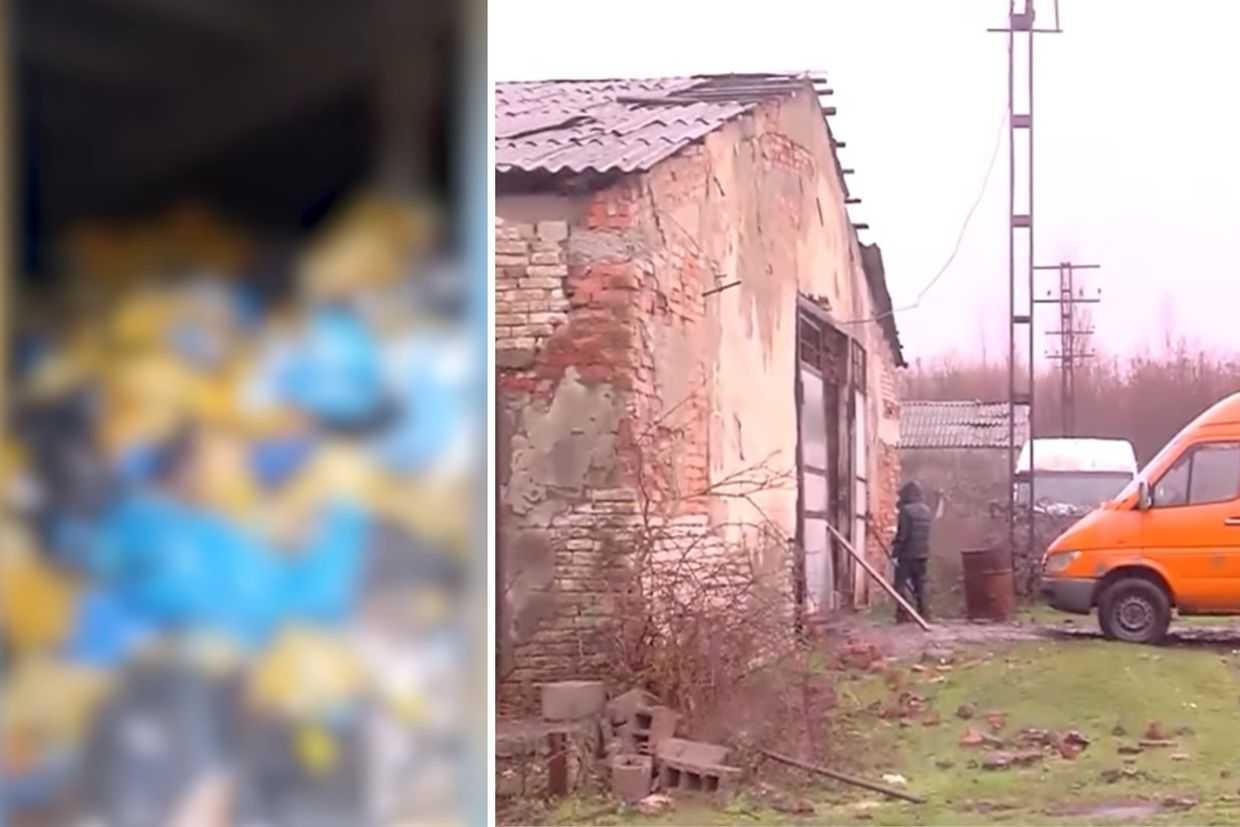
According to preliminary results, the ruling Georgian Dream party has won a landslide in local elections, a vote boycotted by the largest opposition groups. On election day, a pre-announced ‘peaceful revolution’ by opposition figures failed to materialise, with a brief attempt to storm the presidential palace pushed back by police.
With 75% of votes counted as of 01:00 on Sunday morning, Georgian Dream were leading with 81% of the vote. This would almost certainly give the ruling party majorities on every municipal council in the country. Georgian Dream candidates also held strong leads in every mayoral race, running unopposed in 26 out of 64 cities and municipalities.
Official turnout was just 41%, the lowest in Georgia’s post-independence history, according to Batumelebi. Turnout was much lower in Tbilisi — the center of ongoing anti-government protests — where only 31% cast ballots according to the official data.
The Central Election Commission reported that the vote had proceeded in an orderly manner. Major local election observation groups did not observe the vote, citing the falsification of last year's parliamentary elections. The OSCE, historically the largest international observer group in Georgia, also did not send a mission, claiming the government did not invite them until it was too late to organise a 'meaningful' observation.
As the elections unfolded, protesters gathered in central Tbilisi at a rally initiated by several opposition figures — an event that had been announced for weeks and frequently promoted as a ‘peaceful revolution’ or ‘peaceful overthrow’.
The demonstration saw large numbers: the protest that had begun more than 300 days earlier and had since sharply diminished in size was revived by tens of thousands flooding the center of the capital.
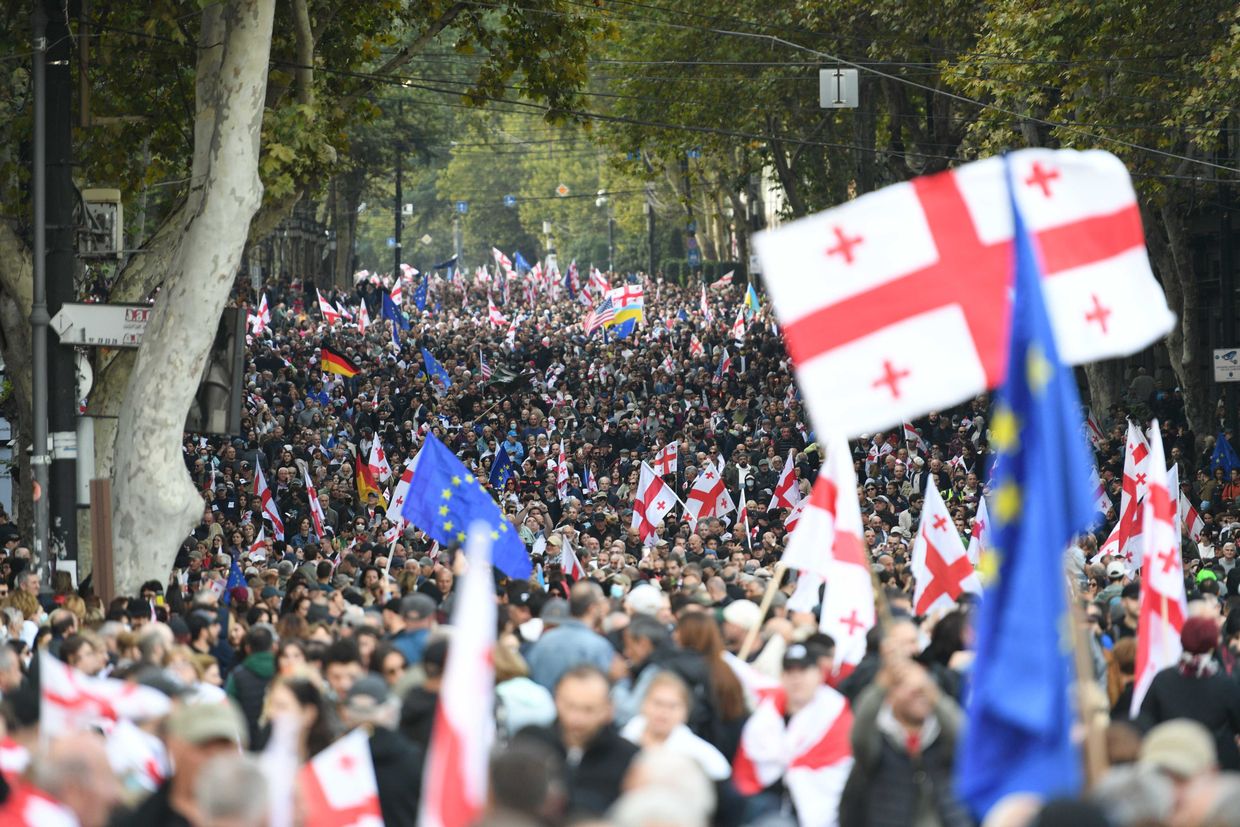
Momentum grew further when one of the rally’s initiators, opera singer Paata Burchuladze, read out a ‘declaration’, which stated that power in Georgia now belonged to the people, that Georgian Dream was illegitimate, and demanded that law enforcement arrest the ruling party’s leaders and side with the people.
Another of the organisers then called on those gathered — especially male protesters — to march toward a Presidential Palace as part of an effort to retake control of state institutions he said no longer expressed people’s power.
Protesters in Georgia are attempting to storm the presidential palace.
— OC Media (@OCMediaorg) October 4, 2025
🔴 Live updates: https://t.co/W8TRQOh4Px pic.twitter.com/8TnUhkBYRN
A group of protesters then successfully tore down sections of the fence outside the presidential palace, briefly entering the grounds. However, riot police soon intervened, deploying pepper spray, tear gas, and water cannons and pushing protesters back. This was followed by clashes, with protesters building barricades and setting fires.
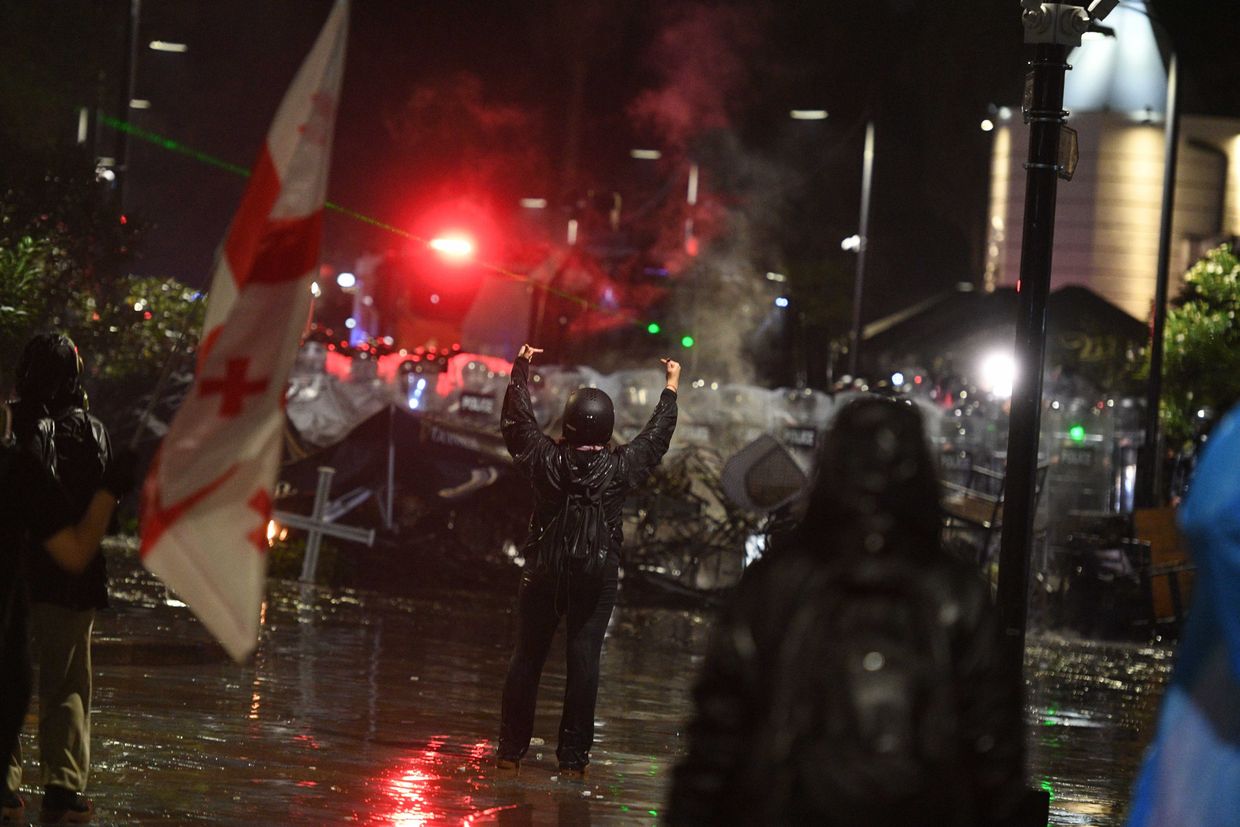
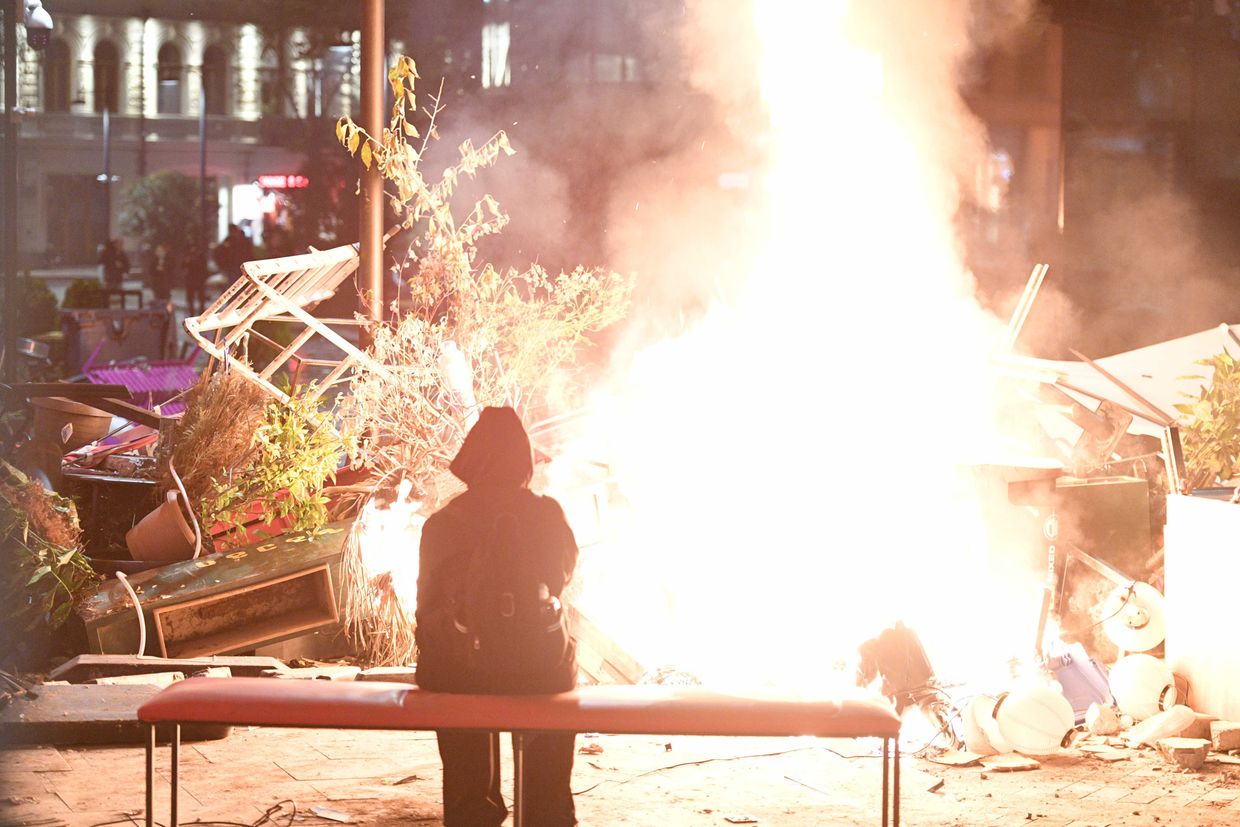
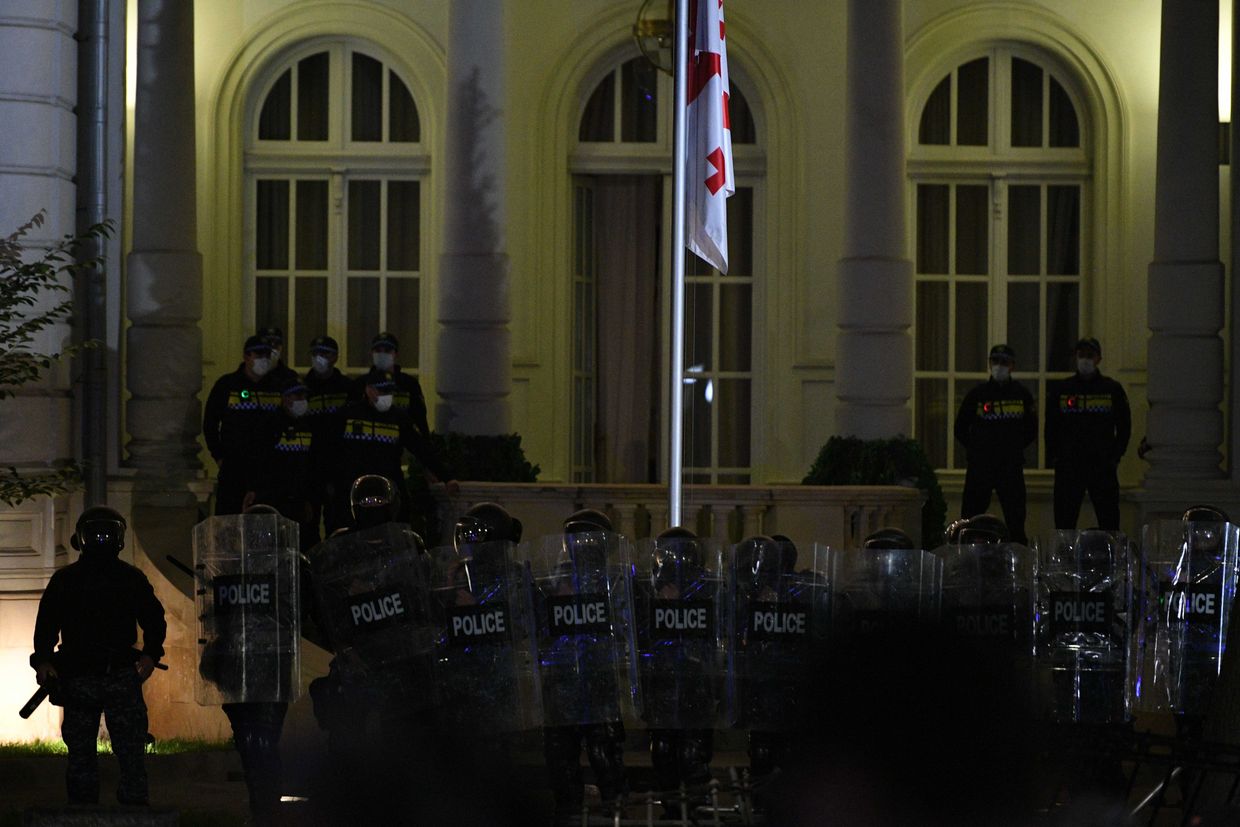
The failure to storm the building led to confusion among protesters, with many expressing frustration at organisers for failing to communicate any plan.
The protesters who stayed at Liberty Square remained there for a while before some eventually moved to the parliament. Most of those from the palace area also later relocated to the parliament, before gradually dispersing, though sporadic clashes with police continued near the palace.
Organisers later attempted to assuage a clear dissatisfaction among protesters, making several speeches.
‘There is no such thing as a two– or three-hour revolution. It is a process that requires several days of struggle, of confrontation, and the revolution will prevail’, one of the organisers, opposition figure Murtaz Zodelava said, according to IPN.
Saturday’s protest had long been planned, with a group of opposition figures — including Burchuladze, Zodelava, and others — had been announcing the gathering for weeks and fueling expectations of swift change. At one point, Burchuladze insisted that: ‘We start at four and we finish at four’.
In the early hours of Tuesday, heavily armed police entered the hospital where Burchuladze was undergoing treatment, arresting him.
Police then moved to arrest United National Movement party (UNM) member Irakli Nadiradze, as well as opposition figures Murtaz Zodelava, Paata Manjgaladze, and Lasha Beridze — all four members of the 'organising committee' introduced by Burchuladze earlier in the evening. Nadiradze and Zodelava were arrested when police stormed the area in front of parliament, where a handful of protesters remained.
The Interior Ministry said they had launched an investigation into the day’s events under four articles: incitement to violently overthrow the constitutional order or the government, group violence, seizure or blocking of a strategic facility, and damage or destruction of property.
New arrests on the horizon
The authorities reacted triumphantly.
At a gathering of party leaders at the Georgian Dream HQ after polls closed, the party’s founder, Bidzina Ivanishvili, said they had ‘paid respect to our ancestors’ by winning.
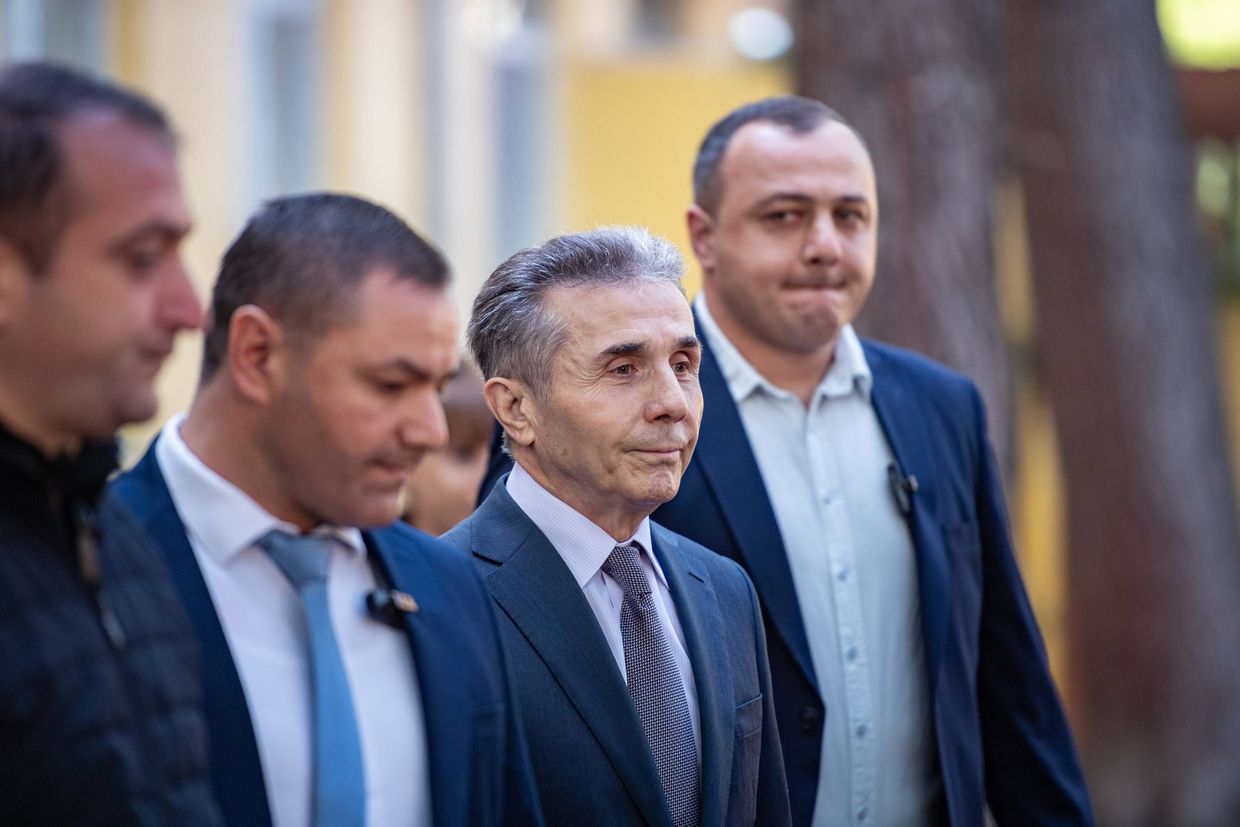
‘This is what Georgia deserves. This is what our history deserves. What our genes deserve’, he said
He went on to rail against ‘agents’, a reference to the party’s central ideology that Georgia was resisting pressure from the ‘deep state’ or ‘global war party’ that controlled the West.
‘Behind [the agents] stands a much greater evil, and anyone who understands politics knows very well which forces support them and what is happening in the world today’, he said.
‘We are the most gifted nation and we have proven it — we are the only state that managed, through unity, to send away this externally controlled, conquering power. We are gradually reclaiming our sovereignty’.
As the night progressed, officials also hinted at a possible new wave of repression. Prime Minister Irakli Kobakhidze announced ‘strict measures’ and additional arrests would follow in the coming days. Dozens of protesters have already been imprisoned after attending previous rallies while the most senior opposition politicians are almost all behind bars.
In his statements, Kobakhidze once again repeated the frequently voiced accusations against his opponents, describing the protest as ‘organised by foreign intelligence service’.
According to the Health Ministry, six protesters and 21 police officers were hospitalised following the protests.
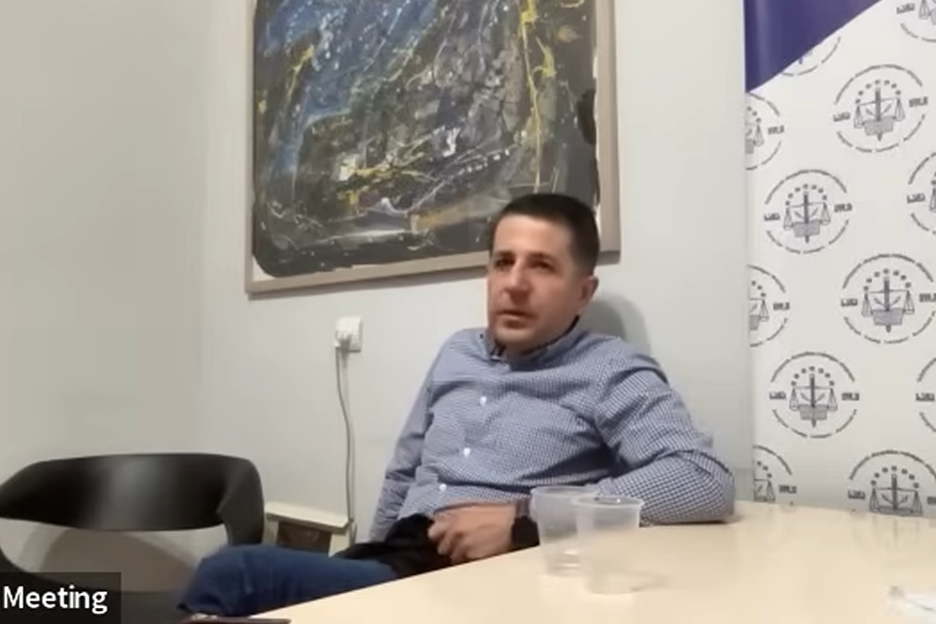
This article was translated into Armenian and republished by our partner CivilNet.







